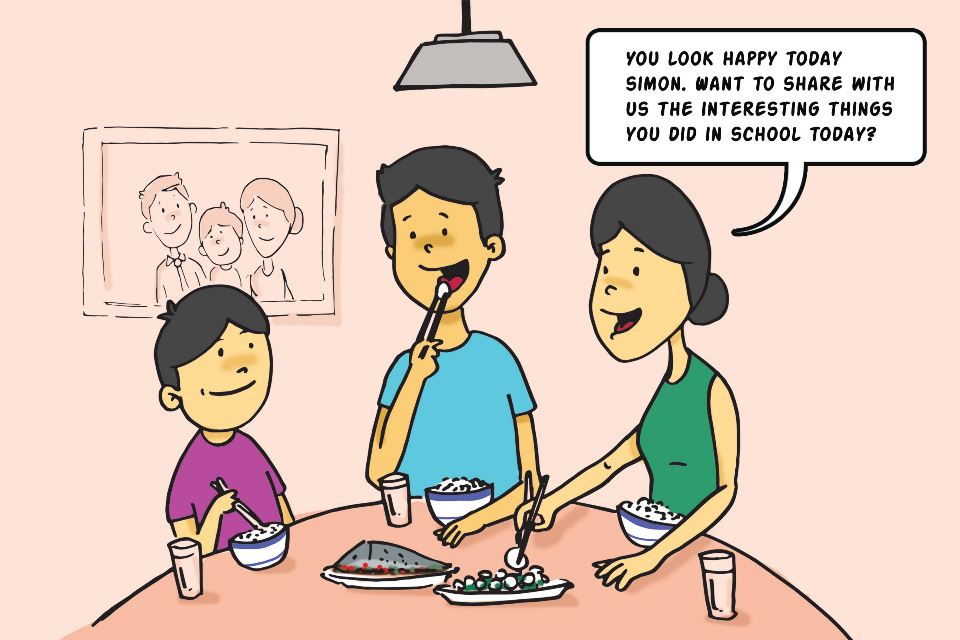It is the end of a busy day at work and you’re settling down to dinner with your child. Maybe you’re already wondering – has she finished her homework? When is her next test? How did the top student in her class do in the last test?
While it is natural to want to know these things, dinner is also a great opportunity to learn everything else she does in school. You probably have some idea of her grades already from report cards, circulars and the consent forms you’ve seen. You know terms like FTGP, VIA, PAL, and know what they stand for (Form Teacher Guidance Period; Values-in-Action; Programme for Active Learning). But what do they really mean to her?
Why not let her tell you herself? Help her do this by asking:
1. “What questions did you ask your teacher today?”
Teachers need not be the only ones in class with the questions. Everyone learns better when they are curious, so help your child develop that habit by asking her what she asked. You will not only find out what she learned that day, but what she wants to learn. What if she kept quiet? Do not fret. Just let her know it is okay to ask. That’s what teachers are there for!
2. “What would you like to do more of?”
The growing-up years are a time of discovery, and schools are places to help your child find her interests. Maybe she scored a goal during PE and is encouraged to play football more. Or she really enjoyed acting as a wise old tree as part of a PAL drama activity. She could be excited about starting out in a CCA. Find out what she’s had the chance to try, and what she likes best. Who knows, it could be the start of a lifelong passion…
3. “What did you learn about using computers?”
Your child is a student today, which means she is also a digital native — someone born after information technology became a part of everyday life. With this in mind, schools not only teach Maths and Science with computers, they also teach your child how to use computers healthily. This means respecting others, being responsible, and being positive.
4. “Have you done anything nice for someone else?”
Your child may have made a new friend recently, and she may not even be from her school! Through various school-based community projects, students have befriended the elderly, the poor, those with special needs and more. These activities help your child understand her place in society, and develop empathy for others. No one is too young to help another…and once they get in the habit, they will never be too old for it!
5. “What are you looking forward to next week?”
If school was just about tests and grades, no child would want to get up in the morning. Thankfully there are learning journeys, interesting projects, outdoor adventures and lots more to enjoy. Ask her about them, share her excitement, and find out what she learns from them. Help her feel good about school, and that positivity will spread to everything she does there — including her studies.





.jpg)
